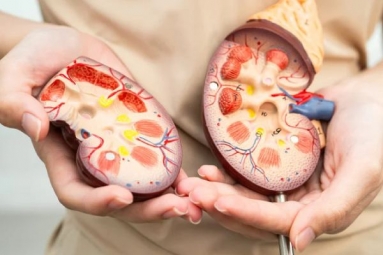
(Image source from: Canva.com)
During the sweltering summer days when the sun blazes and the heat is unyielding, instinctively reaching for a glass of ice-cold water seems natural. It provides an instant cooling effect and appears to be the ideal option — yet, it's important to realize that consuming chilled water in extreme heat may not always be the wisest choice. While staying hydrated during the summer months is crucial, the temperature of the water you consume can cause subtle but significant reactions in your body. Below are some lesser-known repercussions of drinking cold water during hot weather:
Impacts Digestion: Cold water has the potential to restrict blood flow and solidify fats from your meals, which can hinder the digestive process. If you frequently opt for icy water with or after your meals, it may result in bloating, digestive discomfort, or stomach pains.
Irritates the Throat: A quick switch to cold temperatures after being in the warmth could trigger throat discomfort or possibly a mild cold. The sharp contrast in temperature might irritate the throat lining or provoke sinus issues in individuals with sensitivities.
Influences Heart Rate: Consuming very cold water can activate the vagus nerve, which governs various involuntary functions in the body, including heart rate. For some, this can result in a temporary decline in heart rate — a feeling that might be interpreted as chest pressure or light-headedness.
Can Induce Headaches or Brain Freeze: Have you ever gulped cold water too quickly and been hit with a sharp headache? That sensation is known as a cold-stimulus headache, or “brain freeze,” caused by the rapid temperature change affecting nerves in your mouth, sending pain signals to your brain.
May Lower Hydration Effectiveness: Interestingly, drinking water at room temperature or slightly cool may be more effective for hydration compared to ice-cold water. Extremely chilled water can lead your body to use extra energy to warm it up to its natural temperature, which could slow down absorption.
Choose water that is cool or at room temperature rather than servig it ice-cold. It offers a refreshing feel without overwhelming your body, helping you to stay hydrated, healthy, and enjoying the summer heat throughout the season.







